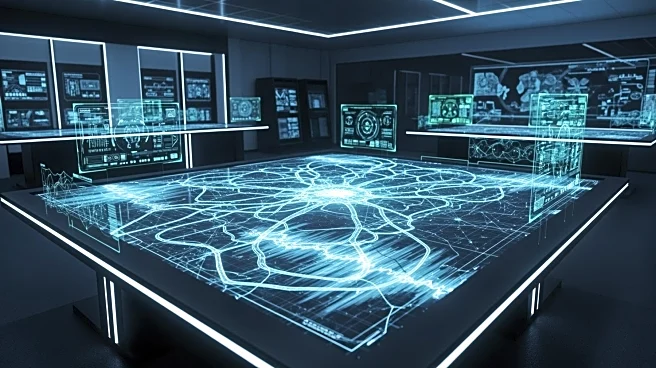What's Happening?
China's military is advancing its counter-AI warfare strategies, focusing on deceiving enemy AI systems through various means. The People’s Liberation Army (PLA) is training its forces to alter vehicle
appearances to mislead AI, inject junk data into enemy systems, and swamp battlefield computers with noise. These tactics aim to make enemy AI chase false targets and miss real threats. Chinese companies are also marketing products that support these strategies, such as multispectral camouflage and radar-absorbing materials. The PLA's approach targets data, algorithms, and computing power, aiming to disrupt enemy AI operations comprehensively.
Why It's Important?
The development of counter-AI strategies by China signifies a shift in military tactics, where AI systems are not only used for combat but also targeted for deception. This poses a challenge for U.S. military planners, who must now consider the vulnerability of their AI systems in future conflicts. The PLA's focus on deceiving AI highlights the importance of robust AI defenses and the need for continuous testing and evaluation. If the U.S. military fails to adapt, it risks falling behind in a critical aspect of modern warfare, potentially leading to new vulnerabilities.
What's Next?
U.S. military planners are urged to enhance their AI systems' resilience against deception tactics. This includes structured red-teaming, rigorous testing, and evaluation of AI systems. The U.S. has existing frameworks like DARPA's GARD and IARPA's TrojAI that can be leveraged to strengthen AI defenses. Additionally, training exercises should incorporate AI-enabled reconnaissance and deception kits to prepare forces for real and fake target scenarios. Maintaining human oversight in AI operations remains crucial to prevent new vulnerabilities.
Beyond the Headlines
The ethical implications of counter-AI warfare are significant, as it involves manipulating AI systems to mislead and deceive. This raises questions about the moral responsibilities of using AI in warfare and the potential for unintended consequences. The PLA's strategies also highlight the importance of human judgment in AI operations, ensuring that life-and-death decisions remain under human control. As AI becomes more integrated into military operations, the balance between technological dependence and human oversight will be critical.









